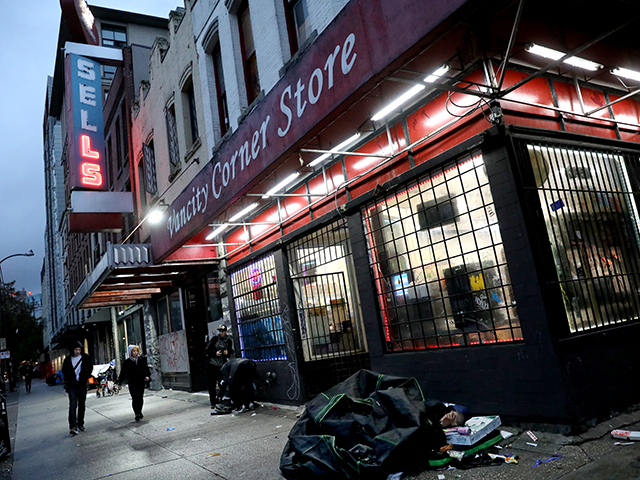Canada’s National Post on Tuesday published the results of a poll that show nearly a third of Canadians believe assisted suicide should be offered to homeless people who are weary of their lives.
A fifth of the respondents said Medical Assistance in Dying (MAID) should be offered as an option to anyone, regardless of medical or psychological condition.
The poll, conducted by a public opinion firm called Research Co. founded by noted Canadian pollster Mario Canseco, looks like the rapidly approaching bottom of a slippery slope that began when Canada became one of the few countries to legalize assisted suicide for non-medical reasons in 2021.
A larger number of countries have legalized euthanasia and assisted suicide — similar but not identical procedures that vary based on how deeply a doctor is involved in the process — for people suffering from severe chronic pain or terminal illnesses. There is constant pressure to “liberalize” the procedure further with arguments that adults of sound mind should be able to request humane medically assisted death for any reason they see fit.
In some countries, the requirements for “sound mind” and even “adult” have been challenged. Belgium, for example, allows children of any age to request euthanasia if they have a terminal illness. In February, a Canadian parliamentary committee recommended expanding MAID to allow “mature minors” to request the procedure.
Canada lifted the requirement for adults to be suffering from a terminal illness in 2021, and in March 2023 it formally authorized euthanasia for people suffering from mental illnesses, although implementation of that change was pushed back to 2024 at the last minute.
Critics of the practice pointed to an explosion of suicides among Canadians as MAID was first destigmatized, and then actively promoted by doctors trained to bring euthanasia up in conversation with patients, rather than waiting for them to make the fateful request.
The ensuing surge of assisted suicides was remarkable, as the National Post reported: “While only 2,838 Canadians opted for assisted suicide in the first full year of legalized MAID, as of last count in 2021 that had risen to 10,064 – an increase of 32.4 per cent over just the year before.”
When MAID was authorized for people with mental illness, skeptics predicted health officials would see it as a cost-effective method for cleaning out overcrowded clinics. Last August, a Canadian armed forces veteran suffering from post-traumatic stress disorder said he was offered medically assisted suicide by an employee from the Department of Veterans’ Affairs even though he had never expressed any interest in dying.
MAID in Canada does not even require supervision by medical doctors, only nurse practitioners, and it is offered to prisoners, a measure even toddler-suicide Belgium balked at.
According to the Research Co. poll, 73 percent of Canadians are comfortable with the current state of MAID, and only 16 percent want to put restrictions back in place. The National Post noted a growing number of Canadians across all demographic lines believe assisted suicide should be liberalized even further:
If a Canadian’s only affliction was “poverty,” 27 per cent said they would be fine with legalizing that person’s access to MAID. Another 28 per cent pegged “homelessness” as an appropriate bar to qualify for MAID.
And 20 per cent of respondents were fine with MAID being handed out to anybody for any reason. In other words, one fifth of respondents agreed with the sentiment “medical assistance in dying should always be allowed, regardless of who requests it.”
Notably, these most absolutist supporters of assisted suicide were pretty evenly distributed among age groups, regions and even political demographics: 20 per cent Conservatives, 20 per cent of NDPers and 22 per cent of Liberals were in the “always be allowed” camp.
Perhaps most strikingly, half of the poll respondents said they were untroubled by reports that people with severe illness are choosing MAID because they cannot obtain the medical treatment they need from Canada’s overstressed socialized medical system. Over half, 51 percent, said they endorsed “inability to receive medical treatment” as a reason for requesting assisted suicide, which will come as grim news to MAID critics who thought killing patients because Canada is running out of medicine would be the last straw.
The only place Canada’s enthusiasm for euthanasia appears to falter is the plan to offer MAID to people with mental illness, perhaps because securing legitimate consent from people who are not of sound mind is problematic.
Canadian Justice Minister David Lametti said MAID eligibility for the mentally ill was pushed back to March 2024 in order to “provide sufficient time to ensure our health care system fully protects those who may be vulnerable and supports autonomy and freedom of choice.”

COMMENTS
Please let us know if you're having issues with commenting.